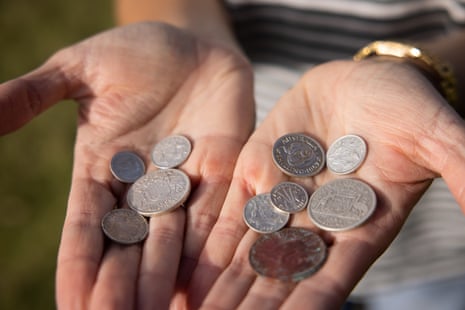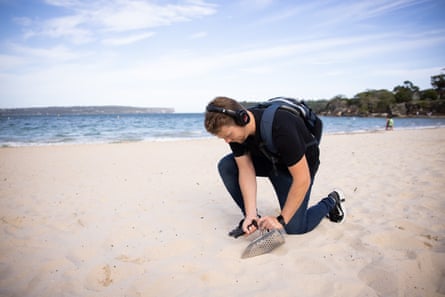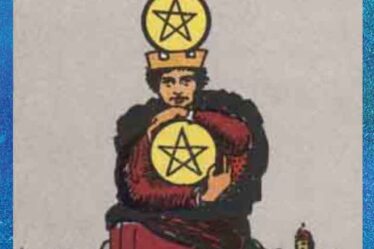
There’s two reasons beaches are good places to go metal detecting. One is because people drop things, so you can find stuff like modern jewellery – but that’s not my biggest interest. The other is because over time, the sand moves and the sea washes away parts of the beach, so you can eventually reach deeper spots. And people have frequented beaches since the dawn of time, so there’s all kinds of stuff there.
When I was a kid, my grandad used to take me out with his metal detector on the beaches down in Devon in the UK and we’d find bits and bobs, nothing crazy. Then a couple of years ago I picked the hobby back up with my partner, Emma, who is just as much of a detectorist as me.
We had moved to Australia about two weeks before we went to Balmoral that day. We didn’t have a car yet, so we decided to kill a day by going detecting close to where we were staying.
We’d been on the beach for about half an hour and mostly just found pieces of lead when I heard a faint signal from my detector. Very, very faint; I could barely hear it. So I kicked off the top two or three inches of sand, which is a normal technique if you want to get closer to a target and clear up what you’re actually hearing.
I started getting a tone from my machine that is consistent with silver coins, so we dug down about 55cm. And then we found a small silver threepence. At that moment we were like, “OK, let’s have more of a look here.”
Finding the first coin was cool. And then once we dug a bit more, that’s when I started to get excited. We found another coin, and then another. At that point, I realised that there must be a whole bunch in this area. So we ended up digging for about four hours, just in that nine or 10 sq metre area.
We pulled out 47 coins in total on the day, ranging from 1920 to 1960. And about 26 or 27 of them were full silver coins – threepences, sixpences; we even got a ram’s head shilling. Two florins. I found an Edward the Seventh penny as well!
I’ll be completely honest – as somebody who detects, I try and keep my cool because when you find stuff, it usually isn’t what you first think it is. You might think you’ve got something interesting, but most of the time it just turns out to be a ring pull from an old bottle.
But Emma and I were yelling out the coins we were pulling out around each other and laughing. We’d run over to each other, hold the coin in the other person’s face and say: “Look!”
I think somebody must have had a stall selling drinks in front of the Bathers’ Pavilion in the late 50s or early 60s, knocked over their tray and all their takings for the day went into the sand. You don’t have 47 coins just fall out of a pocket. I love putting together pieces of a story like that. It’s part of the appeal of detectoring to me.

It was hard to stop digging, but we got chased out by the light. So we eventually decided to call it and came back the next day.
We only found two more coins then, so we did a pretty good job the first day. They’d be worth, for all of them, probably somewhere between $500 and $600. But I’d never sell them. I keep them in a display case at home. Because I’m a nerd, I have nerdy friends, so when people come around, I like to show them off!
I didn’t expect to find anything that wasn’t completely modern on Balmoral Beach – detectorists go there all the time.
Normally, on a regular beach day, I would expect to find maybe a silver ring or earring within four or five hours. And that would be on a good day.
A haul like this is insanely rare. I don’t even know if there’d be anything like it anywhere in Australia – even if I detected every beach in the country, I may never find anything this good again. It does feel like fate, I suppose.
There’s something very unusual about jumping on to a beach for the first time on the other side of the world, and finding something that you’ve never found at home.


